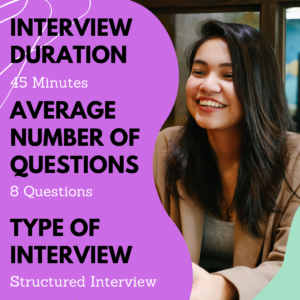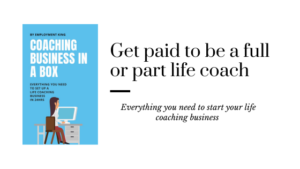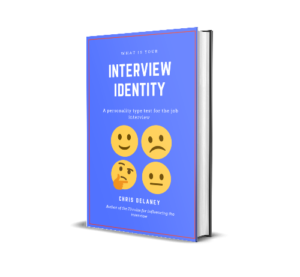Human resource interview research is designed to find the best way to predict job performance by reviewing predicted performance of a job interview applicant to actual performance within the workplace.
To date, the most successful interview format for accurately predicting job performance is the structured job interview. The flaw of the structured interview is the design of the interview questions.
A structured job interview uses behavioural and situational interview questions. This set of job interview questions, in the main, focus on competencies, asking if the applicant can complete the business-as-usual job duties.
Only asking questions based on job duties, does not take into account motivational factors within the workplace. A career professional may perform better in one organisation over another due to the culture of the company.
Interviewer’s, therefore, need to ask questions relating to the company culture and the personal values and motivational traits of each applicant to better predict the potential employee’s job performance.
The aim of strength-based interviews.
Strength-based job interviews, which focus the interview questions on what an applicant ‘enjoys’ within a workplace, help an employer to cross-reference the company culture and job duties against the candidate’s answers.
Strength-based interviewers ask questions to help to uncover a candidate’s interest and best working styles. Whereas situational and behavioral interview questions, in the main, have a focus on the applicant’s ability to complete the required duties recorded on the job criteria form.
Initially from the field of positive psychology, the idea is an employer, by identifying an applicant’s strengths required for the advertised role, will hire a high-performing team.
By focusing the questions on what the applicant enjoys should result in an employer recruiting an applicant who will enjoy working within the culture of the company, thus, hiring a highly motivated employee.
Strength-based interview questions then ask;
‘What do you like to do?’ instead of ‘What can you do?’
How to answer strength-based job interview questions.
With strength-based interviews, there is no right or wrong answer, instead, employers are looking for honesty to create a good match between employee and culture.
Strength-based interviews should be two-way. If the applicant answers truthly and is then rejected for the job role, this, long-term, should be a positive outcome, as it is unlikely that the candidate would have responded well to the company culture.
Interviewees still need to present answers confidently, highlighting a high level of knowledge and experience for the job role in question. Being ‘honest’ still requires self-promotion.
The ‘can-do’ vs ‘enjoy to do’ interview both have advantages and disadvantages, for both the employer and interviewee.
What is important for a career professional is to be able to recognise the type of interview question being asked.
Strength-based interview scoring.
All interviewers, to help predict job performance, require applicants to give an honest answer.
A frank applicant has to be careful. Even though an interviewer’s objective is to hire the best candidate, in terms of job performance for a ‘typical’ day, an interviewee, answering questions with a ‘typical’ behaviour answer will be scored lower than a competitor who only states ‘best’ performance answers confidently, due to the interview scoring system.
This is true with strength-based job interviews. Even though strength-based job interview questions ask ‘preference’ questions, each answer, to showcase the candidate’s level of knowledge and experience, often include an ‘example’ of the preferred approach.
Each real-life example needs to show how energised (or motivated) the applicant is by what the job entails.
Some employers use a blended approach, with a mixture of behavioral or situational interview questions and a set of strength-based questions. Whereas other employers use only one interview format.
For all options, interviewers allocate a score for each applicant’s answer.
For blended strength-based interviews, the interviewer will either score the answer in a similar way as they do for the structured job interview, as each strength-based interview answer should be accompanied with an ‘example’.
When all questions are strength-based, many interviewers will ask additional questions to pin down an applicant’s motivational factors, using the combined answers to help them score the applicant on a large sliding scale.
In addition, the employer will ask multiple questions, framed differently, based on the same criteria or strength.
Strength-based interview question examples.
‘How would you respond in X situation?’
‘Do you prefer to be told what to do or to do tasks in your own way?’
‘How would colleagues describe you?’
‘What do you use to measure your success?’
‘When working to a deadline, do you prefer to make decisions or to be told what needs to be done?’
‘Who do you look up to and why?’
‘Describe a perfect day?’

‘What task do you most enjoy doing?’
‘What task do you always start first?’
‘Do you prefer starting or finsihing tasks?’
‘Does this position play to your strengths?’
‘What would you dislike about this role?’
‘How do you prefer to be managed?’






















